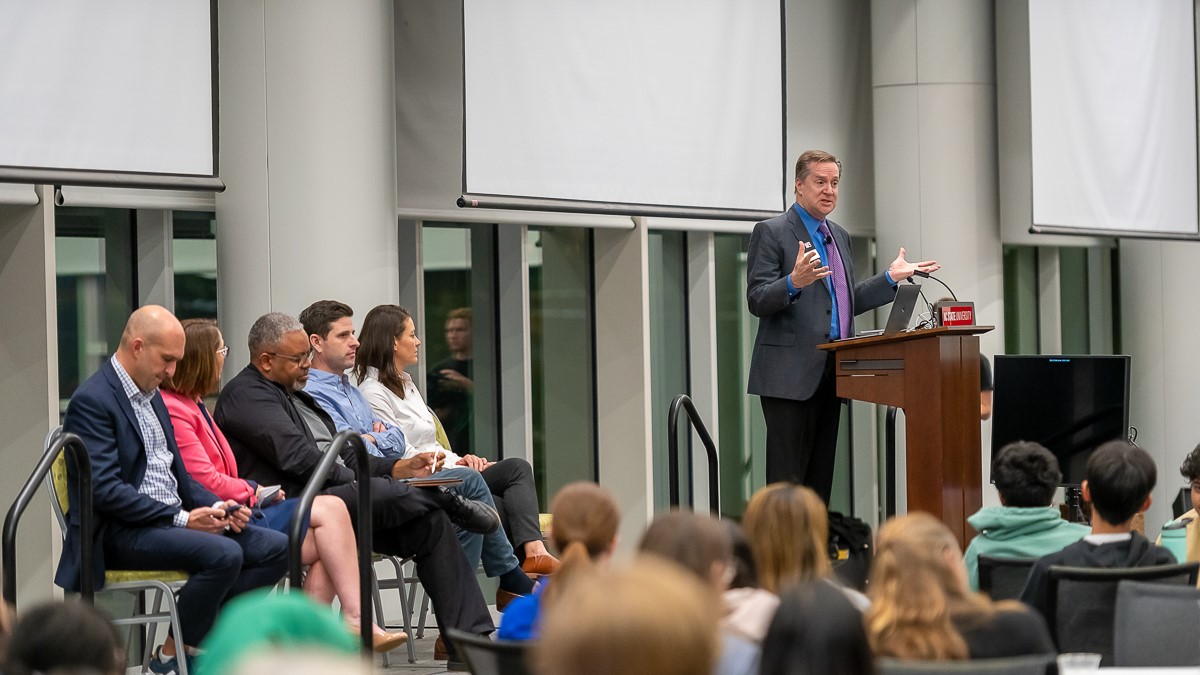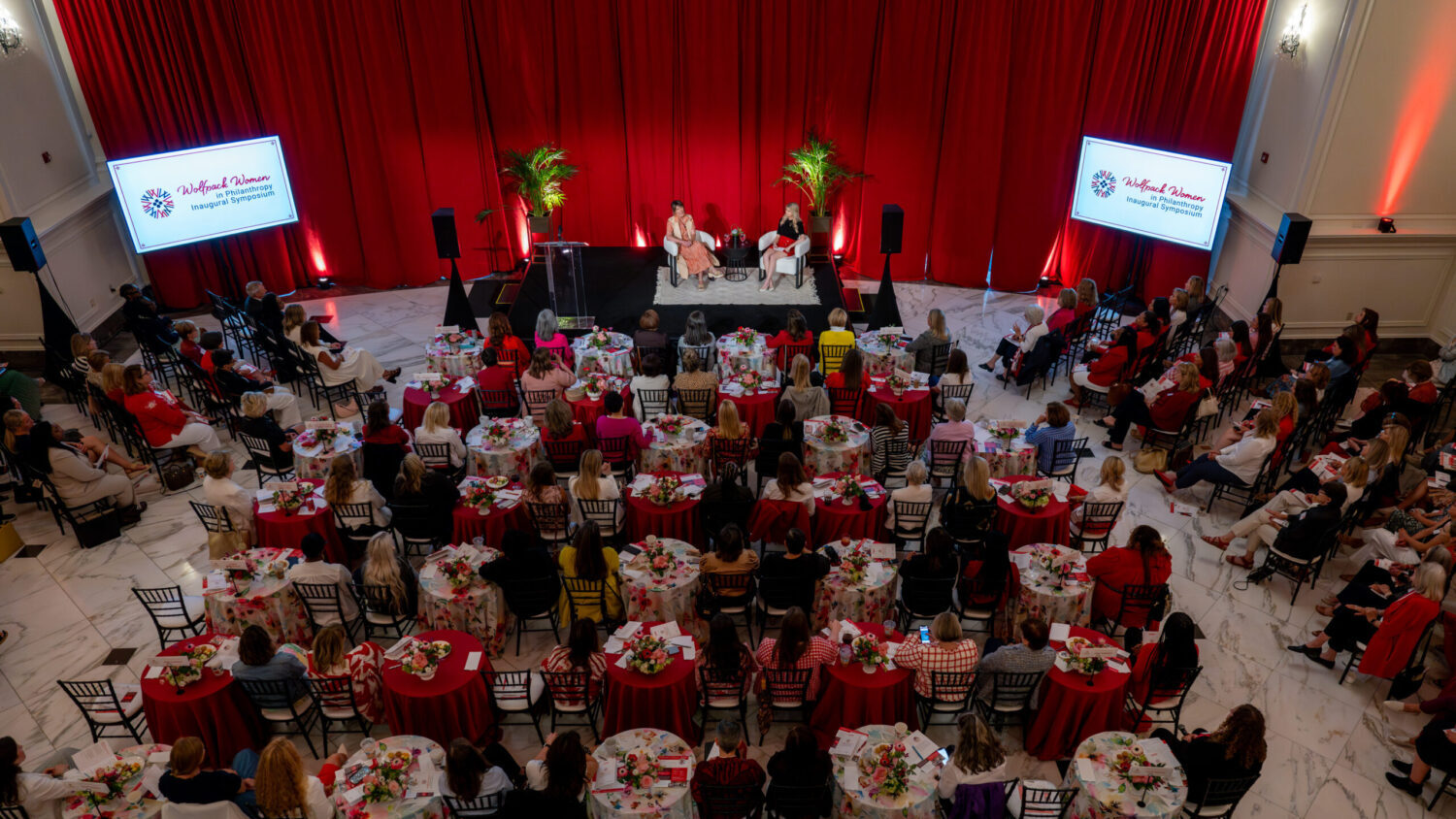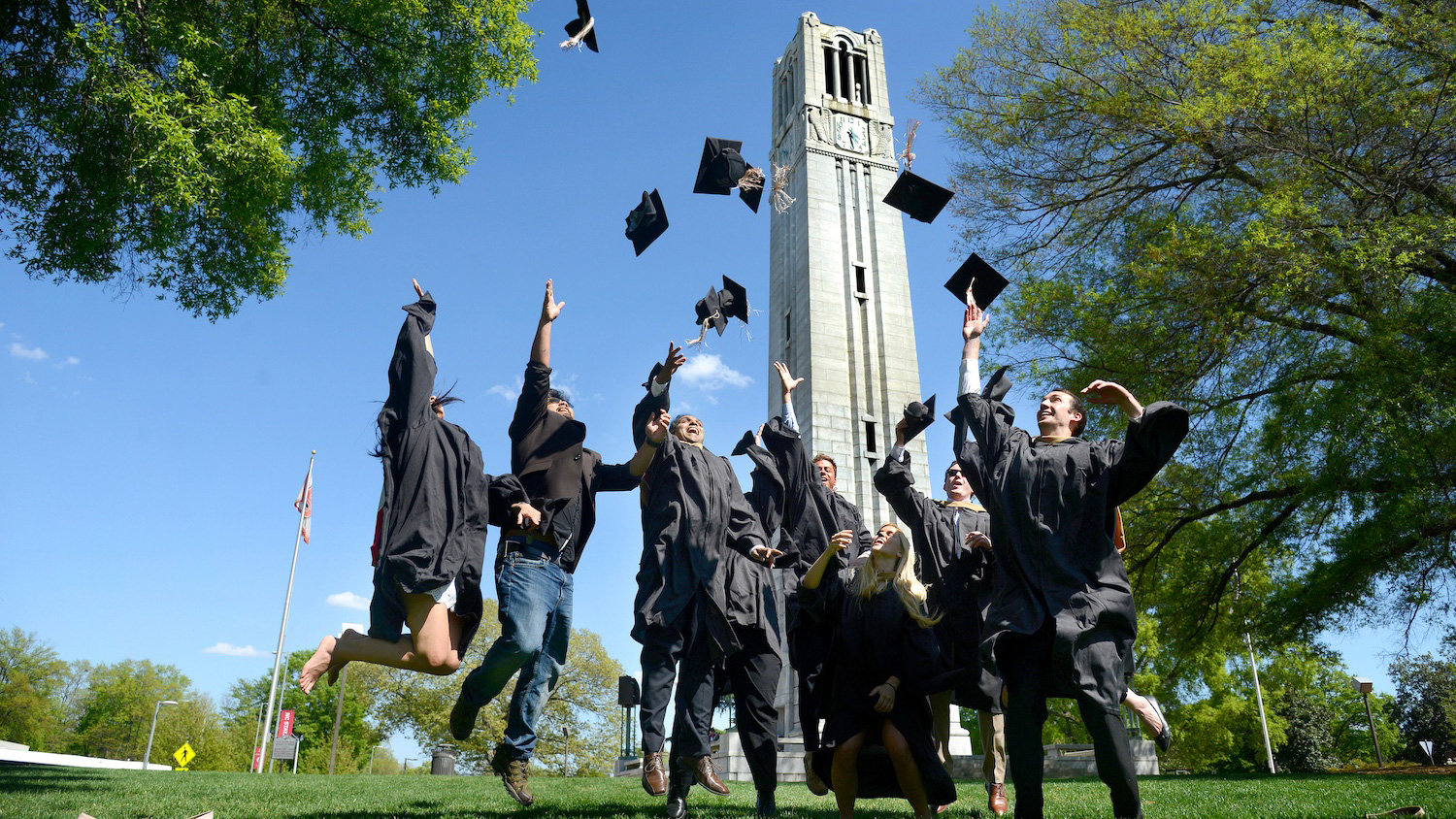Beyond Extraordinary
Park Scholar Abigail Wucherer '24 is using her voice to make change for her fellow students.
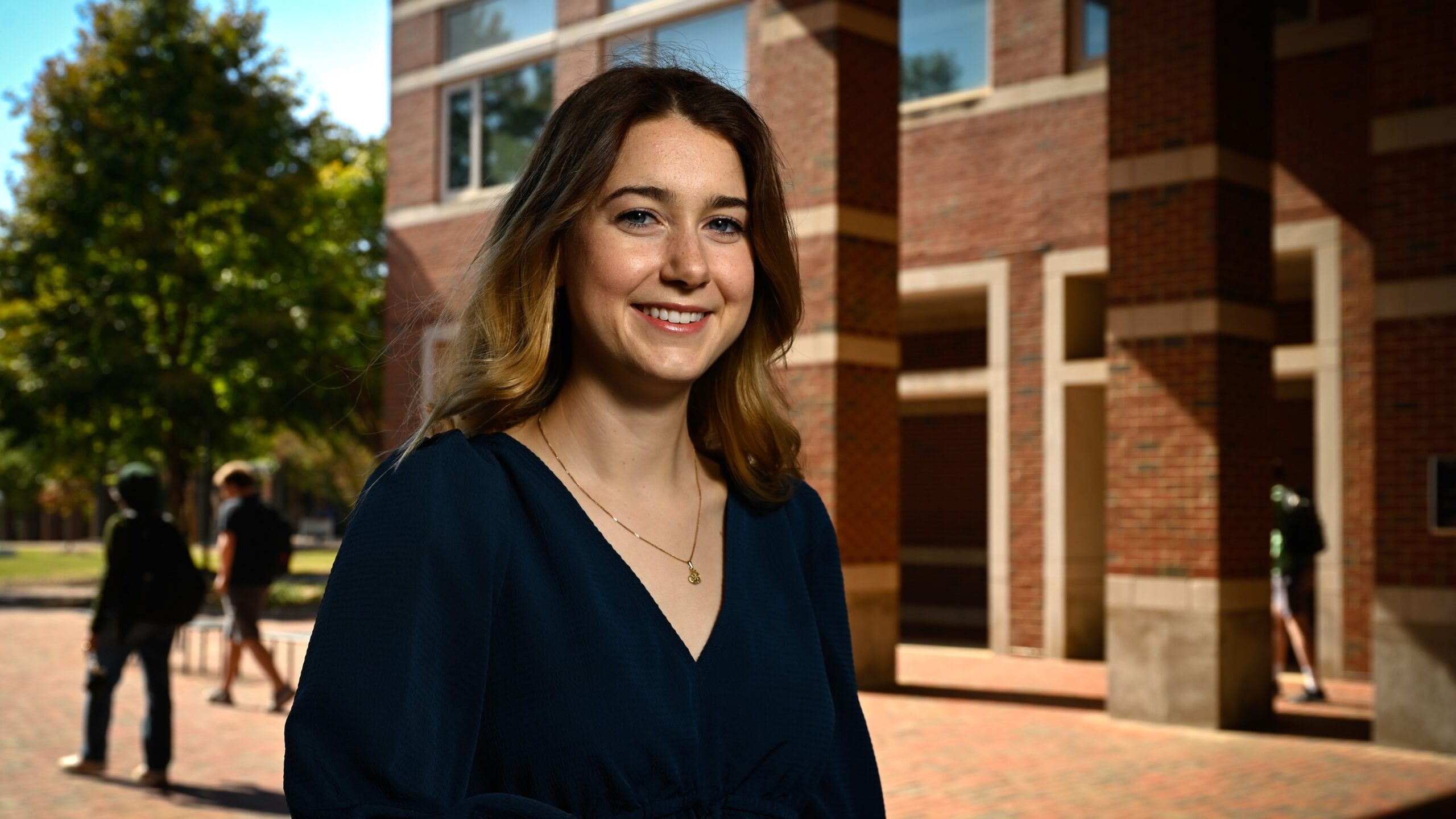
This story contains mentions of mental health struggles and suicide. If you need help, please visit the NC State’s Wolfpack Wellness page. To speak with a crisis counselor, call 919.515.2423 or dial 988 to reach the Suicide & Crisis Lifeline.
It would be easy to read Abigail Wucherer’s list of accomplishments at NC State and deem her a superstar.
After all, that list is long.
She’s a Park Scholar and an active member of the Park community. As a mechanical engineering major, she has honed her battery research and development skills during internships at Keystone Tower Systems, Rivian and Tesla, where she stepped into a lead role.
And if that wasn’t enough, Wucherer is also an entrepreneur, helping found the nonprofit Arin’s Good Girl Dog Treats with her family while learning from home during the early stages of the COVID-19 pandemic.
But to say she’s a superstar simply because of her resume is to overlook the full story — one of passion, creativity, leadership, pain, loss and courage — that has defined Abigail Wucherer’s college experience.
More Than a Scholarship
Wucherer hails from Belmont, North Carolina, a town west of Charlotte. She began making her way eastward as a high school student at Salem Academy, an all-girls boarding school in Winston-Salem.
“I think that was really critical to leading me to NC State,” Wucherer said. “I went from an educational experience where my classes were between three and 10 people and all girls to classes with hundreds of students, mostly male. Both have been a very important part of my journey.”
Also leading Wucherer to NC State was the opportunity to join the Park Scholarships program, which provides four years of financial support and dedicated learning opportunities to empower students to realize their potential in scholarship, leadership, service and character. Talking to Park Scholars pursuing the same engineering goals and recent graduates whose experiences led them to careers doing things like building roller coasters made the university feel like the right choice.
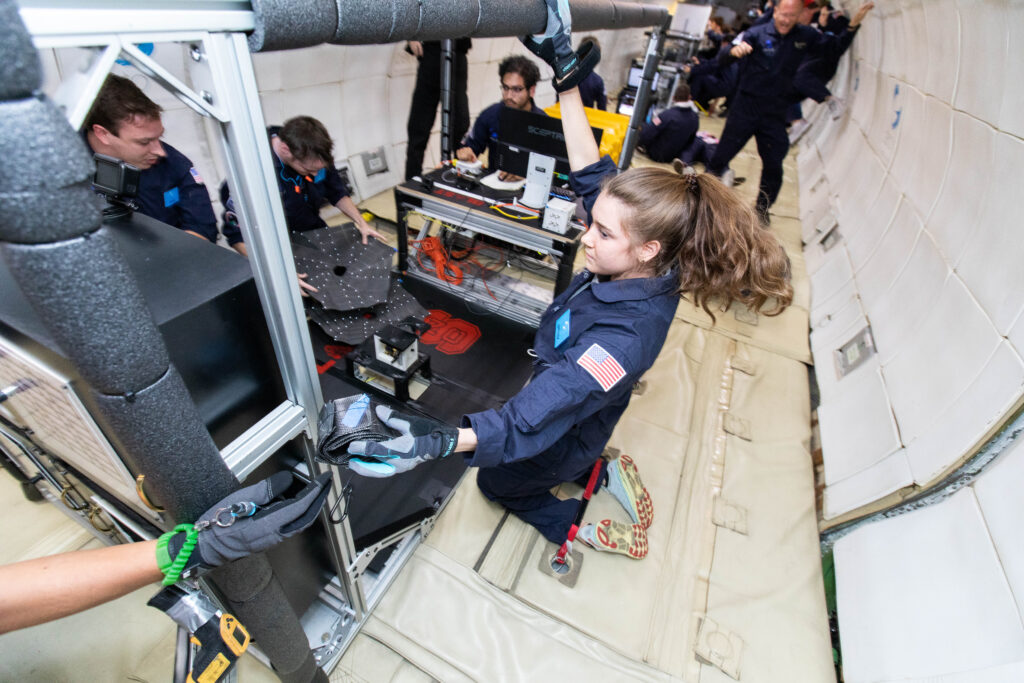
In addition to community, mentorship has been a key part of the Park experience for Wucherer, from her freshman orientation group leader, Hampton Clark, who provided inspiration for a career path, to the faculty mentor, Dr. Mark Pankow, who helped guide her into research and provided the opportunity to go on a zero-gravity flight.
“When I think about how the Park Scholarships program has impacted my time here, all I can really say is, how has it not?” she said.
Sparking Success
Wucherer has put the core tenets of the Park Scholarships program — particularly leadership — into action as part of NC State’s Cooperative Education Program, more commonly known as co-op. A Park alumnus even connected her to Keystone Tower Systems, a wind turbine manufacturing startup in Denver, Colorado.
“I started online for the first five weeks because it was during the height of COVID,” Wucherer explained. “One highlight was starting a fire in my parents’ driveway at home. The team at Keystone had shipped me industrial grinders, and I built a test rig, and during my first test, the shop vacuum filter caught on fire. So my design didn’t work, but that was a fun learning experience.”
In fact, Wucherer’s later designs proved quite successful. She traveled to headquarters in Denver and to the company’s factory in Pampa, Texas,to see her design concepts go through build, testing and then commission in the first-ever spiral factory for wind turbines.
Wucherer’s next stop took her to Silicon Valley and Tesla, an assignment that was intended to last four months but extended to a year. What started as a crash-course in learning the ins and outs of car battery abuse testing turned into a leadership role where Wucherer managed builds and tests, as well as helped make key design decisions and develop a new failure analysis system using CT scans of battery packs.
“We sent hundreds of test articles for CT scanning — that was a project I took a lot of leadership on. I spent hundreds of hours of my life looking at CT scans of batteries,” she said. “I didn’t even know you could do a CT scan on a battery, but I loved seeing what it looked like.”
The assignment wasn’t without its sparks either: When preparing a battery for the CT scan, a section needs to be water-jetted, and Wucherer and her team found themselves jetting a battery that wasn’t fully discharged. It was only her second week, and there she was, managing fire again.
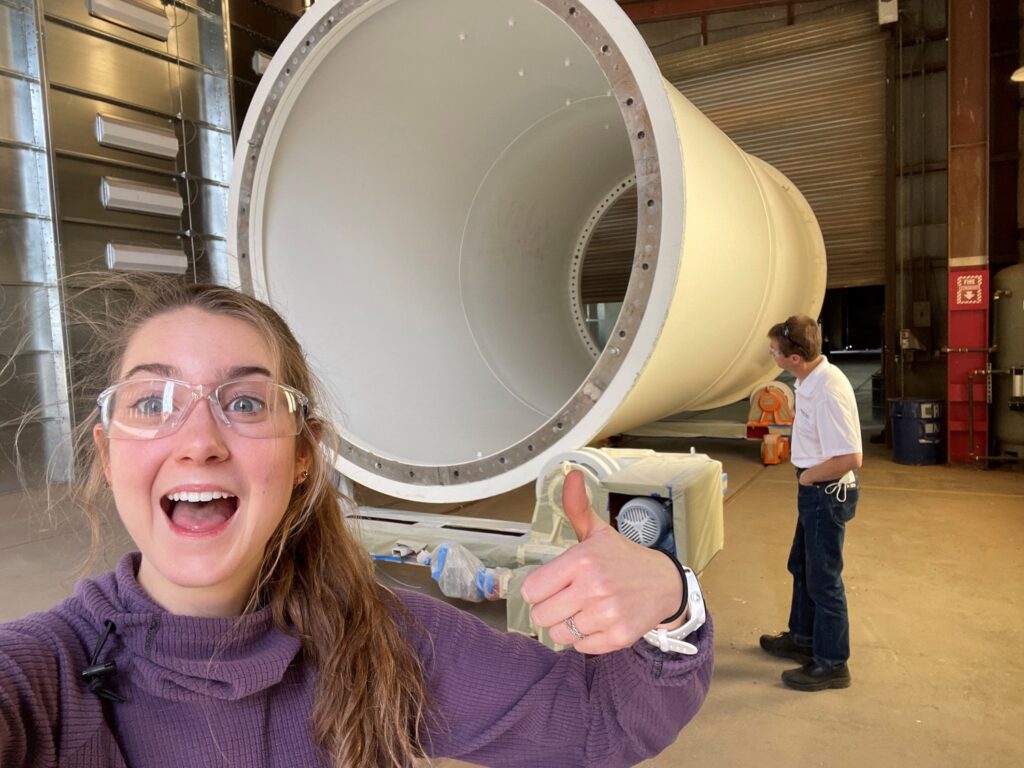
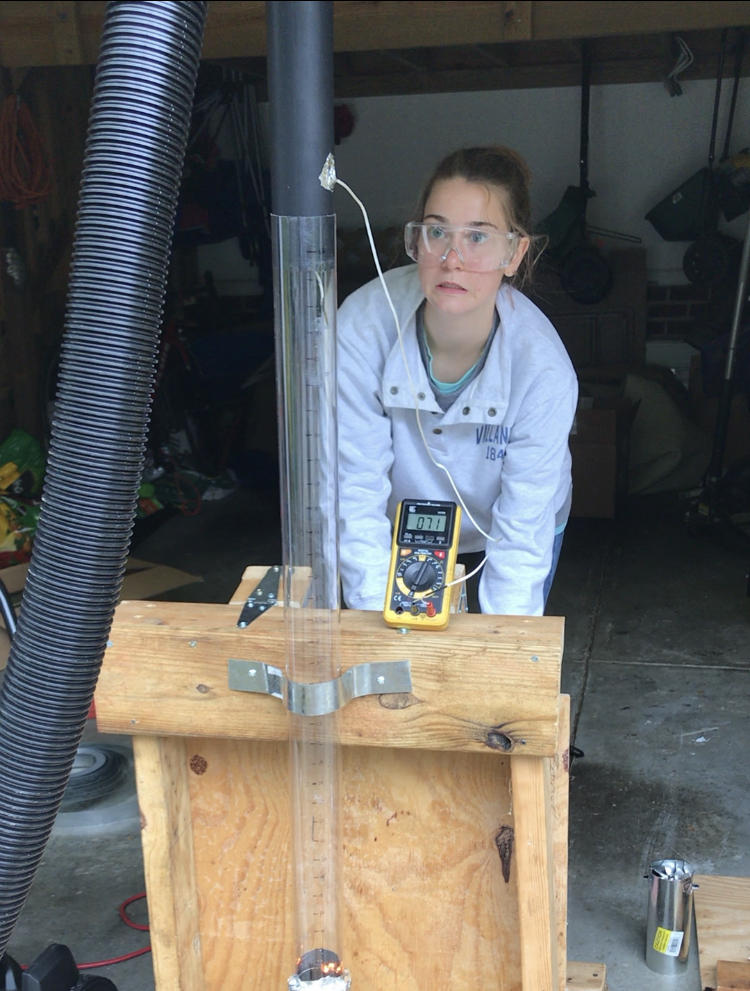
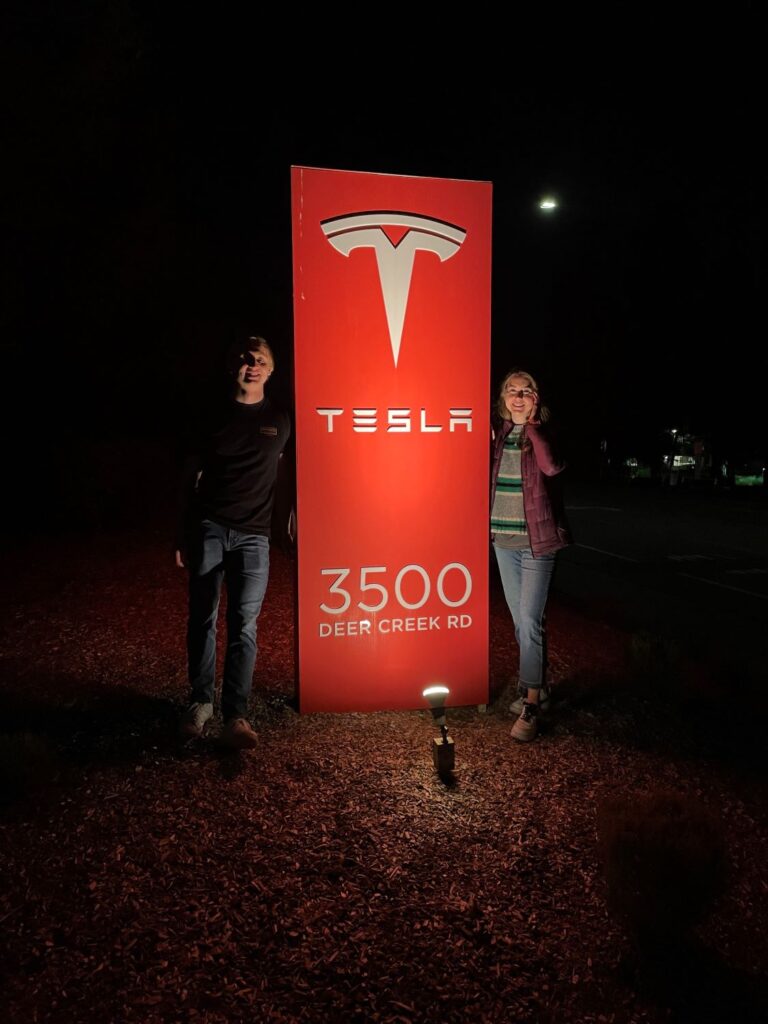
The year at Tesla was one of challenge and discovery. The hours were long, and Wucherer learned she loved to bike as she bookended her days on the bicycle path between work and home. Becoming familiar with the Palo Alto area proved wise, as her next co-op was in battery research and development at Rivian, an electric vehicle manufacturer a few blocks away from Tesla.
“If you’ve ever seen the Amazon delivery vans with the circle lights, those are made by Rivian,” Wucherer explained.
She worked on a team developing in-house battery cells, which would allow the company to optimize for energy density, safety and reliability, and filed two provisional patents while working on future generation cell design iterations.
Wucherer spent her lunch hours with her fellow interns, discussing the fundamentals of different lithium-ion cell chemistries and crystal structures, and explored high-temperature cell aging lab space in heated rooms with cold smoothies. This time, the only sparks were the creative ones.
Ventures In Entrepreneurship
In addition to her coursework, co-ops and Park Scholarships activities, Wucherer has managed to find time to hone her skills as an entrepreneur with Arin’s Good Girl Dog Treats, a nonprofit company her family founded and named after her sister, Arin.
“When COVID hit and I was living at home, my mom and I were trying to get this off the ground,” Wucherer said. “I talked to Lindsay Wrege, a Park alumna who is one of the founders of 321 Coffee, quite a bit, because we have similar missions. Her guidance was really helpful.”
Arin’s Good Girl Dog Treats aims to expand the impact of Arin’s passion of making dog treats for her service dog and support career development opportunities for people with intellectual and developmental disabilities.
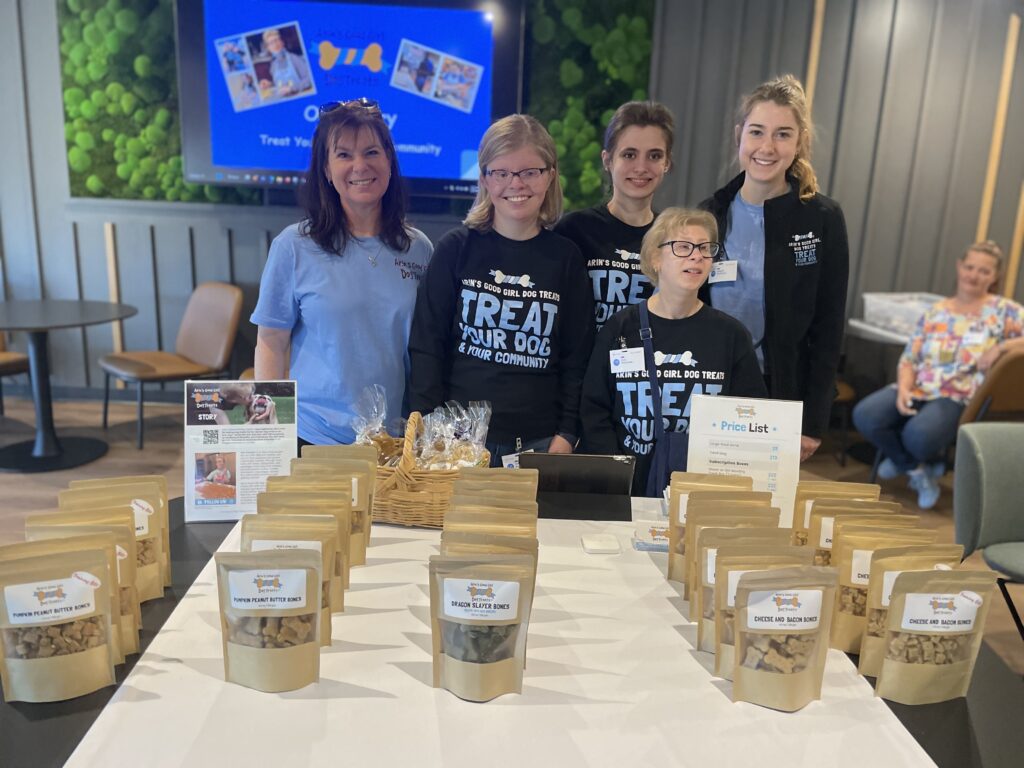
When Wucherer returned to campus, she took a venture studio class offered by the Entrepreneurship Clinic and attended mentorship meetups. She also pitched at Entrepalooza and won $1,000 of seed money.
“So many of the lessons from my venture studio professors, Gabe Gonzalez and Tom Collopy, factored into how I approach problems and how I think about ways we can make an impact,” she said.
Being the Change
Between the COVID-19 pandemic and working on location at her co-op opportunities, Wucherer’s NC State experience has taken place off campus as much as on. However, that has not stopped her from being an active member of the university community — or from becoming a powerful voice for change over the last several months.
The 2022-23 academic year was a difficult one at NC State, marked by the loss of several students by suicide. For most, the news was heartbreaking. For some, including Wucherer, it was also personal.
“My childhood best friend died by suicide last spring. The loss has been indescribable,” she said. “She was a significant part of my life from second grade onward, and honestly, the mental health crisis affecting students my age has devastated my college career in more ways than I can say.”
After her friend’s death, Wucherer took some time away to grieve and process. She found a measure of comfort in her mentors at Park — director Eva Feucht helped ensure she could have space and stay on track academically, and classmates and faculty scholars reached out to extend their support — and sought out therapy.
“It’s not a subject that is ever going to be easy to talk about, nor is there a single obvious solution to this crisis, but we have to start somewhere.”
When Wucherer was ready to return to campus, she had on her engineer’s hat. “Although it can seem futile, whenever I have a problem or challenge, the only way I can see through it is trying to help fix it,” she said.
She had already been thinking about ways to improve how mental health is addressed on campus and had helped host a workshop with the Counseling Center and the Women in MAE Club. After her friend died, she wanted to be involved on a deeper level.
“One of my Park faculty mentors connected me to Savannah Powers, another engineering student who is so passionate about mental health advocacy work. We talked about how we can specifically support engineering students, since many inherently don’t like to talk about their feelings,” Wucherer said.
The two spoke with Angelitha Daniel, assistant dean for student, faculty and staff equity and inclusion, and Domonique Carter, university program specialist, at the College of Engineering.
“We told them what we were interested in doing, like sending out a mental health newsletter, getting more resources and having more conversations about mental health among students so we can break down the stigmas, and they told us, ‘This sounds like an Active Minds club’,” Wucherer said.
Active Minds is a national nonprofit with chapters all over the United States and beyond. Wucherer found resources, research and community as she attended orientations for starting the club on campus, and she quickly set out to accomplish her first goal: getting the National Suicide Prevention and NC State’s Counseling Center 24/7 hotline phone numbers onto student ID cards.
“I learned that 67% of students struggling with a mental health crisis will turn to a peer first,” Wucherer said. “My personal experience was that I didn’t know what I should be doing when my friend was having a crisis, and I know I can’t be the only one who had that experience.
“Adding these numbers to ID cards is a tangible way for students to know that as soon as they’re on campus, they have access to a 24/7 helpline, and the hope is, if a friend or peer comes to them in crisis, they have a place to direct them. It makes it as simple and accessible as possible when you’re dealing with the cognitive load of a crisis.”
More than 60 universities have already taken a similar step. Wucherer met with various leaders across campus, including Chancellor Randy Woodson, and thanks to her efforts, NC State will join these ranks with a sticker to be added to all current IDs until it becomes a part of printing.
“Mental health is fundamental to the college experience. I feel like I was talking about the mental health crisis at least once a week, and even more so now that I’m on the advocacy side,” Wucherer said. “I don’t know if I’d call it something I’m passionate about as much as I am painfully aware of.
“It’s not a subject that is ever going to be easy to talk about, nor is there a single obvious solution to this crisis, but we have to start somewhere.”
Positive Proof
So, if Wucherer is a superstar, it is for more than the prestigious scholarship, entrepreneurial success and resume with highlights most people earn long after they’ve graduated.
Wucherer has achieved superstar status by using her voice to shine a light on important issues for the purpose of helping others and making the university a better place. Speaking up requires courage, and her gratitude for the experiences she’s had at NC State is one more reason she pushes for change.
“I feel like I am a test case for what is possible when you invest in students,” Wucherer said.
“The support and resources — aka superpowers — I have been provided have allowed me to attempt to do more for others, and I know other students can have a profound impact when provided with these same incredible resources.”
And when Wucherer graduates in May 2024, her own extraordinary impact will continue for current and future members of the Wolfpack.
Resources
Keep the conversation going by learning about the resources available at NC State.
- Categories:
